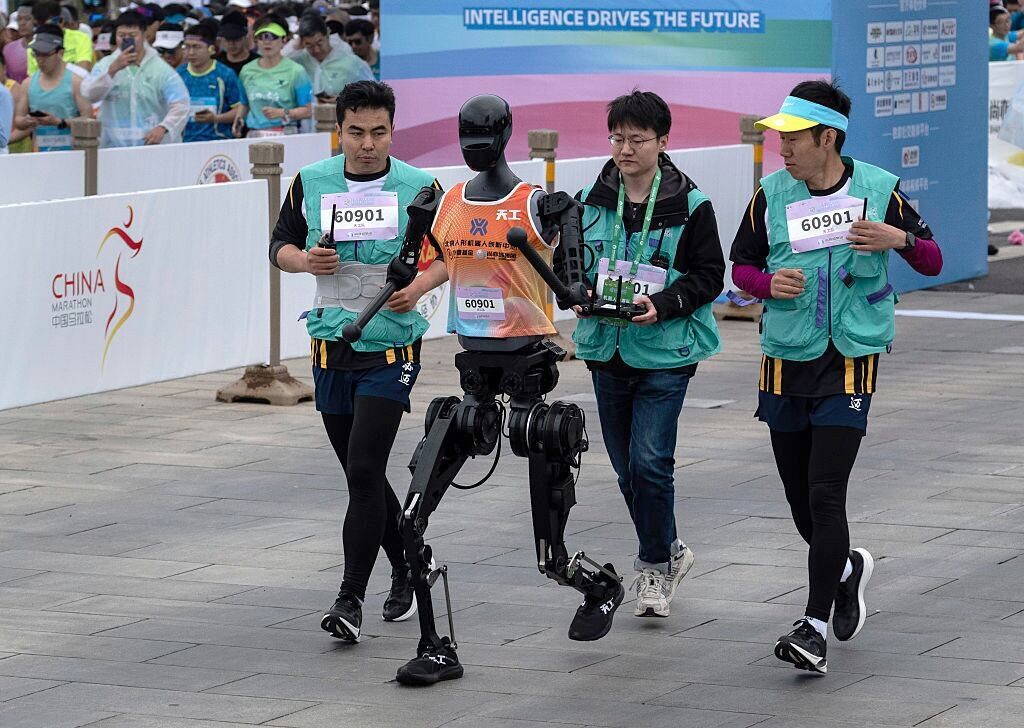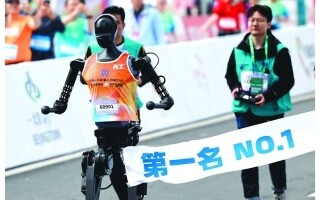
In what was announced as the world's first half marathon for androids, only four of the 21 robotic runners completed the race in E-Town, the technological hub of southern Beijing, within the assigned four hours. The winner was Tiangong Ultra, standing 1.78 meters tall, who crossed the finish line in two hours and 40 minutes, far behind the one-hour time of the human gold medalists.
Spectators, including parents with small children, cheered for the robots, and even some human contestants stopped near the start line to take photos of their mechanical counterparts. The robots varied in appearance, height, and weight. A giant contestant resembled the Gundam robot from Japanese anime, with fans on its arms. Neither of the two recovered to continue the race.
Two dozen teams crossed the start line one after another, followed by minibuses with substitutes and engineers on standby. To qualify, the robots needed to have a humanoid appearance and run on two legs. One robot lost control and crashed into the barrier separating human runners from the robots. "We hope that, regardless of the tasks that robots perform in the future, they can operate 24 hours a day, 7 days a week," stated an organizer.
Still, Tiangong needed a fall and three batteries to secure the victory, with the machine in the jersey leading the competing robots throughout the race. The other three robots that managed to complete the 20.9-kilometer course took more than three hours to finish. The competition was presented as a showcase of China's ambitions in areas ranging from Artificial Intelligence to robotics and semiconductors.
The team complained that the rule had been modified against them and announced plans to file a complaint. Some of the most promising robotics companies in China did not enter the race. Their company plans to deliver 700 robots next month at $6,000 each, a price below the market.
The only female-looking robot, Huan Huan, collapsed shortly after the start, scattering her body armor across the track. "This has been an extreme test for the resilience and stability of the robots," commented a spectator. A human instructor, with a signaling device on his lower back, ran in front of the robot for it to mimic his movements.
Jiang Zheyuan, 27, founder of Noetix Robotics, climbed onto a stool and chanted slogans while watching his robot N2 finish in second place. It was developed by the Beijing Humanoid Robot Innovation Center. Most of the other androids were controlled with joysticks by human operators running alongside them. One fell at the starting line, while another detached its head and rolled on the ground.
Despite the challenges and setbacks, the competition represented a milestone in China's foray into the field of robotic technology, showcasing both advancements and areas where there is still work to be done.













